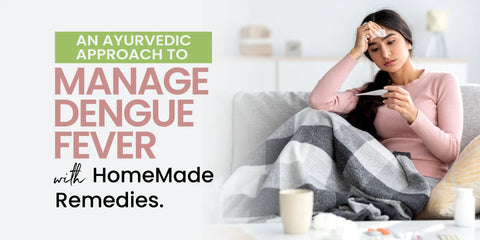What is dengue fever?
Dengue fever comes from mosquito bites in tropical regions like Central and South America, Africa, Asia, and the Pacific Islands. While it's not contagious between people, except for transmission from pregnant mothers to their babies, infection with a different DENV type later increases the risk of severe complications, even though initial infections are typically mild.
Dengue in India

The rise of dengue in India can be attributed to climate change, urbanization, and inadequate public health infrastructure. Warmer temperatures and increased rainfall due to climate change create ideal breeding conditions for the Aedes mosquito, which spreads dengue through its bites. Urbanization contributes by concentrating populations in mosquito-prone areas. Moreover, limited public health resources hinder disease control efforts.
Symptoms of dengue fever
Joint pain
Furthermore, intense joint pain is a common symptom of dengue fever, especially in people with vitamin deficiencies. During the acute stage of the viral fever, joint pain typically affects both large and small joints in the upper and lower limbs, including wrists, elbows, fingers, knees, and ankles.
Pain in the eyes
Dengue virus can affect the eyes, leading to either eye inflammation or bleeding issues.This can include uveitis in different parts of the eye and subconjunctival hemorrhages, which healthcare professionals frequently observe during the acute phase of the illness.
Headache
Dengue headaches are similar to migraines, often throbbing and accompanied by nausea, sensitivity to light, and sensitivity to sound.
Compromised immunity
Dengue can disturb the immune system, causing an overactive response that worsens the disease's severe symptoms.
Drop in platelet count
In dengue fever, a common symptom is a decrease in blood platelet count, a condition known as thrombocytopenia. A lower-than-normal number of platelets in the bloodstream characterizes thrombocytopenia. In most dengue cases, medical professionals can handle the mild to moderate platelet drop through close observation. However, in severe dengue, the platelet drop can be more serious and may cause sudden, life-threatening bleeding.
Here are some Ayurvedic home remedies for low platelet count in dengue:
Boost immunity with Giloy
Boil two Giloy stems in a glass of water until it is reduces by half. Giloy enhances immunity and metabolism while increasing platelet count.
Increase platelet count with papaya leaf
Drink 30ml of fresh papaya leaf juice to relieve fatigue, nausea, and stomach issues while aiding platelet count.
Rehydrate with coconut water
Consume coconut water, rich in electrolytes and essential nutrients, to stay hydrated and support recovery.Tulsi water Drinking a glass of water boiled with 15 leaves of holy basil (Tulsi) and black pepper at an interval of two hours would prove to be beneficial in building up the immune system
Pomegranate and kiwi
Conume pomegranate and kiwi as whole or in a juiced form to increase platelet count and stop it from falling further
Few Ayurvedic measures to prevent dengue.

Neem Oil
Neem is known for its strong insect-repelling property. Applying neem oil on exposed skin can help deter mosquitoes.
Tulsi
Tulsi leaves and essential oil have mosquito-repelling qualities. Planting tulsi near windows or doors can help keep mosquitoes away, and using tulsi-based products on the skin can provide protection.
Giloy
Giloy, Considered an immune booster, is believed to enhance the immune systems response to viral infections, it's available as juice or supplements.
Lavender Oil
Lavender oil is known for its pleasant fragrance and mosquito-repelling properties, which people can apply to the skin or use in a diffuser.
Camphor
Burning camphor in a closed room or applying camphor oil on the skin can help repel mosquitoes.
Lemongrass
Lemongrass has natural mosquito-repelling properties. You can plant lemongrass around your home or use lemongrass oil in candles or diffusers.
















